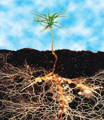Canada’s National Organic Week is the largest annual celebration of organic food, farming and products across the country.
Forever Chemicals are Everywhere
Our environment is past a tipping point. We are now in an era of repair, not just prevention. Recent studies have shown that toxic chemicals called PFAS and polyfluoroalkyl substances, commonly described as "forever chemicals," are now being detected in the blood of 95% of Americans. PFAS are used broadly for various products, from the non-stick in cookware to food packaging and cosmetics. Directly linked to cancers, organ damage and other health problems, these chemicals are now everywhere. Wastewater sludge is commonly recycled into fertilizers used on farms across North America. The only problem is that this fertilizer sludge does not filter for PFAS.
A young couple in Maine purchased farmland they hoped to use to grow organic vegetables and produce. However, they soon discovered someone had been fertilizing the land for decades with recycled wastewater sludge filled with PFAS. Once these chemicals enter the soil, it can be complicated to get them out.
The Organic Approach

Revitalizing the Soil



Thinking Organically
What are some things we can do to think about organic in a holistic way?
· Search for PFAS-free products and shop organic. Here is a great resource to find which brands/ companies offer PFAS-free products.
· Include plants in your garden that are used explicitly for phytoremediation.
· Grow your own Organic Oyster and Shiitake Mushrooms at home.
· Start a compost in your yard or start a community compost.
· Create an organic community garden.
· Participate in Organic Week events.
Learn More On our youTube Channel
Root Rescue Learning Channel






